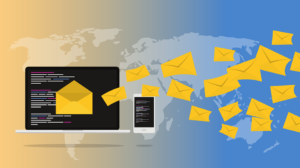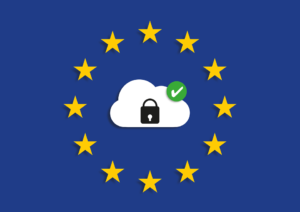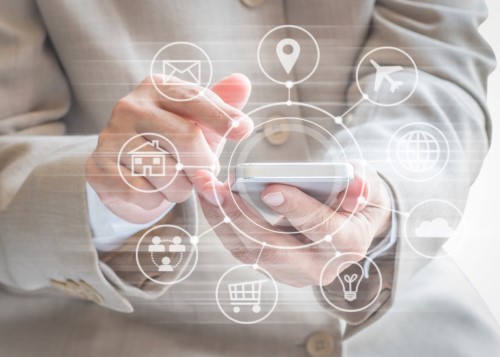In the early days of the internet, it was common to hear that online privacy was a futile worry. The very idea of having “privacy” on a computer network seemed like an oxymoron. Of course, those early creators of the internet and the World Wide Web probably did not conceptualize social media companies, Big Tech, and far-reaching government agencies as we have now.
Today’s digital world has made us all more vulnerable to security threats than we ever imagined possible. Countless people and companies are looking to:
- Steal our data
- Steal our identities
- Scare us into paying them money by threatening to leak compromising photos and videos
- Get their hands on documents or research from private companies
- Apply for credit cards in our name
- And so much more
The problem is these bad actors are not regulated to the secret hacker’s hideaways from popular Americanized movies. While there are plenty of international collections and theft rings operating online, they tend to target hospitals, governments, and big businesses.
No, the people we need to worry about are the wolves in sheep’s clothing. They are the Big Tech companies pretending to offer us free services when in reality, they are collecting valuable data on who we are, what habits we have, and how we react to differing digital stimuli. They are Google, Apple, Microsoft, Facebook, and other digital giants that happily soak up our metadata and either sell it to numerous other groups or use it to perfect their products, so we cannot help but make more and more online purchases.
Your Data is Being Used Against You
It’s not just that your data is being collected and sold to advertisers. It’s also the fact that it can be used against you in more ways than one. The online companies we trust with our information are manipulating us through those very same tools. To make Big Tech better, we need to hold it accountable for what they do with our data and how they use it against us. We have a responsibility to take our online privacy seriously and ensure that these companies don’t get away with this behavior any longer!
Of course, just like any other industry with deep pockets, there is not a lot of incentive for government or public servants to restrict the operations of these companies. Sure, Australia and the U.K certainly have stricter laws than the U.S. when it comes to protecting online privacy, but that does not mean they are by any stretch of the imagination perfect.
Every time you go online, it is like you are offering up more data to create a clearer picture of who you are. Companies like Google are logging all of your behavior, so they can formulate a profile that can be targeted by advertisements. That is why you search for new hiking shoes one moment and see endless ads everywhere you go online the next.
We are the users of the internet. The companies that create the services we use and the platforms we share our data on are responsible for protecting it, but ultimately, we decide what happens with it. We have a responsibility to take our online privacy seriously because if we don’t, no one else will do it for us. It’s up to us to decide how our data is used and to who it belongs. Otherwise, others will make those decisions for us.
Nothing is Really for Free Online
The original intent of the World Wide Web was to make it accessible for everyone to use. There was even a moment in history during the London Olympics of 2012 when WWW creator Tim Berners-Lee was in the middle of the opening ceremonies with the words “This is for everyone” displayed in the audience behind him. It was supposed to be this moment of great importance to showcase how the internet has made the world a better place.
That same year the U.S. Federal government was suing Google over antitrust violations while Australian researchers were proving more than 90% of our country wanted stricter controls to protect their online privacy. To put it bluntly, the right-hand does not know what the left is doing.
Anytime we use a “free” service from places like Google Cloud, Onedrive, or iCloud for iOS, we are allowing these companies to scan our online drives and store any metadata they wish. They bolster their advertising techniques by happily sifting through personal documents, work-related materials, and even the recent love letter from your teenage son or daughter to their first girlfriend or boyfriend.
Google is scanning our photos to increase the strength of its facial recognition tools. There is even a tool for the Google Net Hub that monitors the room of your home. Whenever you pass by the device, it displays the information it thinks you will like the most. Do you really think that is by accident?
Anytime a product is free, you are the product. If you are using free services, they are not truly free. They are just methods to collect your data and then resell it to other companies. Google scans your emailed receipts to construct a shopping profile of your family. Microsoft reads your email to understand how to better “serve” their clients by capturing private information and then analyzing it later.
Is There a Way to Make this Stop?
No, there isn’t. Not to be too full of doom and gloom, but there is no incentive to stop your private data from being manipulated by Big Tech. They own government officials with campaign contributions, and there are too many users storing their data in free services that would never want to give them up.
What you can do is increase the methods of online privacy protection and security you use on a daily basis. For example, you can use Faraday bags and deGoogled phones to hide your location data and prevent advertising agencies from spying on your activities.
Faraday bags are a type of reusable fabric bag that has been treated with conductive carbon. They’re used to block out signals from phones and other devices, such as wifi, Bluetooth, GPS, and cell phones. This makes them an excellent tool for people who want to block out the noise of their digital world while they’re on the move or trying to be alone with their thoughts.
A deGoogled phone is one that has been stripped of all Google apps, services, and features. It’s like an anti-Google device. It’s the best way to reclaim your online privacy and take back control of your digital life.
What do you do if you do not have access to either of these devices?
There is no 100% method to effectively shut yourself off from the rest of the world, online or off. Instead, you need to think of online privacy like you would protecting your home. You are shooting for layers of protection like if you had automatic lights on your perimeter, a fence with only one way in or out, and hard-to-break locks on your doors. Your online privacy is just the same.
We have put together a few tips to get you started with the process of hiding your identity. The goal is to make your activity online more anonymous so that Big Tech cannot take advantage of your personal data.
1 – Set up Several Anonymous Email Addresses
If you want to make sure that your personal information is protected, the first thing you should do is set up a new email address with a service like Protonmail. This service will help prevent any third party from being able to access your data by only giving them an encrypted link to send messages to your actual inbox.
This way, even if someone gets their hands on that link and attempts to access it themselves (which most won’t because they’re lazy), they’ll be unable to see what’s inside.
One of our favourites is Proton Mail. You can set this up by:
- Open a browser (we like Brave) and visit Proton.me
- Click on Sign Up and create a new Protonmail account
- Select the type of plan you want. We suggest a Free plan
- Make a unique username and password
- You do not need give a recovery phone or email ( so do not forget your password!)
- That’s it!
We highly suggest you create 2-3 different email addresses. You can separate them into business, personal, and online activities. That way, you are using a throwaway email address whenever a business or service asks for an email as part of your profile. You know these will be sold and result in spam, so you can take back the power by creating an account you do not need to check.
2 – Set Up Your Own Encrypted Cloud Storage
Cloud storage is one of the handiest things to have. Privacy rights aside, being able to access any information needed from anywhere in the world is pretty amazing. However, you should have to subject your data to being sold off by Big Tech in the process.
To get around “free” cloud storage services, try this:
- Navigate to mega.nz
- Sign up for a 20GB free cloud storage that can be accessed by any device
- Use a fake Protonmail account to create this new storage location
- That’s it!
Mega.nz uses end-to-end encryption tools set by you, the user. You create a key derived from your password. Even the home company MEGA doesn’t have access to this key. No one can read your messages without this key. That protects whatever data you have uploaded so no one else can ever read it.
We keep our devices free from all personal files. Whenever we need something, we download it from Mega.nz, work on it for a bit, then upload it again and delete it from our device. You can also keep a backup somewhere in your home or storage unit just in case.
This way, if your device is ever stolen or confiscated, no one will know what is there. You can put an app on your phone, but we prefer to use a browser shortcut.
3 – Protect Yourself with a VPN
A virtual private network, or VPN, hides your IP address from anyone trying to spy on your online activity. It makes it next to impossible for Big Tech to track your purchases and other preferences. Most security experts and military installations use powerful VPNs to protect their data.
One of the best free versions we have found for our phone is ProtonVPN. If you go to F-droid.org you can find this VPN that only needs an email address to start working. Again, create a throwaway Protonmail address, and you should be good to go.
Work with the Experts
Why take our advice about online privacy? We at Freedom Technology and Services create custom deGoogled phones and tablets as well as sell specialty privacy equipment like Faraday bags to help you stay safe while online. We have worked in the industry for years and know how to set up barriers to stop Big Tech from seeing everything you do. Visit our store today to learn more about how we can help. We hope this article gives you the peace of mind you need to enjoy the internet without big brother watching your every move.









